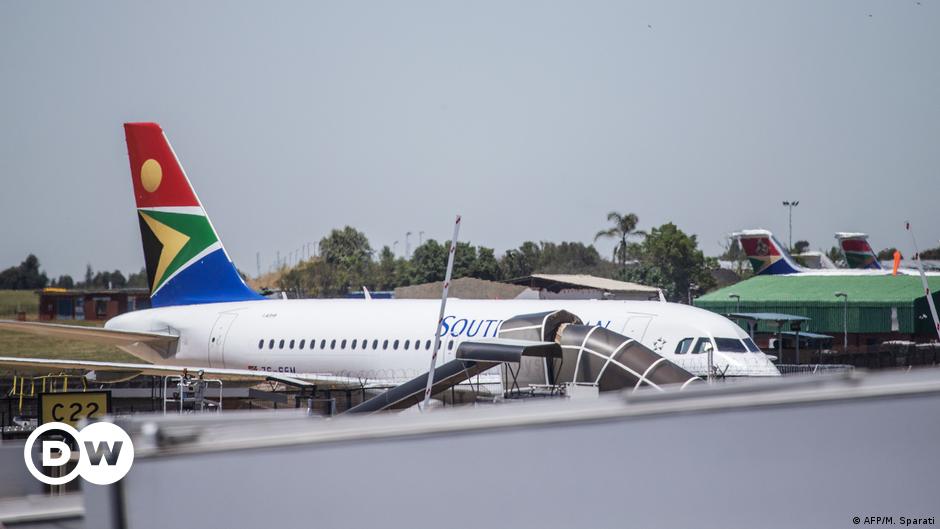
[ad_1]
The crisis at South African Airways (SAA) probably won’t be resolved any time soon after talks for a majority stake purchase were terrminated last week.
South Africa’s Parliament announced on Wednesday that it would refer the collapsed deal to sell a majority stake in the embattled airline to the Takatso Consortium to the independent Special Investigating Unit (SIU).
The SIU investigates corruption at state entities, to ensure “accountability and transparency.”
The country’s Department of Public Enterprises had been in talks with the Takatso Consortium since 2021 for a 51% stake in SAA as part of efforts to end recurring bailouts of South Africa’s national carrier.
Many people working in South Africa’s airline industry are concerned about SAA’s future, especially since the airline came close to being liquidated before it entered a form of bankruptcy protection in 2019.
The crisis was further deepened when the COVID-19 pandemic stuck and negatively impacted the aviation industry — depleting SAA’s already minimal cashflow, forcing the government to hunt for a strategic equity partner to keep it afloat.
Why did takeover talks collapse?
Many experts had predicted that the potential deal was the only way to save airline from itsrecurring woes.
The government wanted the consortium to pay around €100 million ($108 million) more than they originally wanted to pay — increasing the cost for a controlling stake in the airline to €242 million.
South African Public Enterprises Minister, Pravin Gordhan, told Parliament that the higher price was needed since the airline had increased in value.
“There must be a fair value attached to the sale of the 51% shares in the course of this transaction,” Gordhan said.
During the three-year negotiation period, the government was also criticized for trying to privatize the airline, but it has now said that SAA would revert to being fully state-owned and ruled out giving money to SAA in the months ahead.
Frustration over prolonged talks
The Takatso Consortium was forced to defend its financial position to secure a majority stake in the airline after the government’s revaluation.
Thulasizwe Simelane, spokesperson for the consortium, told DW that the issue wasn’t about not having the money to close the deal but rather the protracted nature of the negotiation process.
“At the end of the day it wasn’t about the political pressure, the noise that you are hearing. It came down to, businesswise, as an investor does this make sense for your stakeholders? Can you continue to drag this process along?” Simelane said.
Are SAA jobs safe?
Pravin Gordhan reassured airline employees that their jobs were safe and that the company could sustain itself financially for the next year to 18 months.
“So the message to the SAA staff … is that you don’t worry about your jobs, you don’t worry about the future of your families, that we will ensure that we work with the board and management …to continue to support the sustainability of SAA and to ensure that the corporate plan that has been developed by SAA is further strengthened,” Pravin Gordhan told reporters.
Aviation expert Guy Leitch told DW that the journey to recovery for the airline will be a long process following the collapse of talks.
“For the last 20 years SAA has been absolutely hamstrung by its lack of capital and lack of ability to get the best people on board, develop new routes and so on,” Leitch explained.
“This is even worse post-COVID because the airline has started off at an extremely low base. It lost almost all its best people. It lost most of its aircrafts. So, it has got a much lower base to rebuild from.”
The government has unveiled its future plan that includes gradual growth initiatives, according to the Public Enterprises Minister.
“That corporate plan actually entails the gradual growth in the number of routes that SAA will take up in the course of the next few years. Currently, it has about 19 routes and that will grow up to 40 routes in a five year period,” he said.
Mixed reactions to terminated negotiations
Zwelinzima Vavi, Secretary General of the South African Federation of Trade Unions, told DW that the plan to privatize the airline has been defeated.
“This is the greatest news we have heard in a long time,” he said, adding that “the privatization agenda has been defeated at least for now.”
“We hope that it will be defeated forever. There was never any genuine reason to collapse the SAA that used to be the number one airliner in the whole world, providing the best of services and flying the South African flag.”
But Chris Shabangu, deputy president of the South African Cabin Crew Association, said it would be best if the government bailed out the airline rather than give out a stake to the private sector.
“As government we shouldn’t be afraid to invest in that airline because it’s a national carrier because we have to understand why we are even investing in it, because its mandate is not to make money,” Shabangu told DW.
“We shouldn’t force it to make a profit.”
This article has been adapted by Isaac Kaledzi from a report by Thuso Khumalo on DW’s AfricaLink, a daily podcast packed with news, politics, culture and more. You can listen and follow AfricaLink wherever you get your podcasts
Edited by: Keith Walker
[ad_2]
Source link







